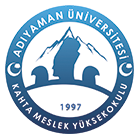Department of Veterinary
Laborant and Veterinary Health Program; To take precautions regarding health and work safety in the working environment as a priority. To have the laboratory equipment regularly maintained and to work in the most efficient way. Determining the laboratory's deficiencies and making requests. To take biological materials (blood, urine, culture, etc.) from the patient. To ensure that the samples taken from the patient are stored and preserved under appropriate conditions. To prepare the materials for analysis, to make material analysis (biochemical, microbiological, pathological hematological etc.). To control the material analysis results, to deliver the material analysis results to the laboratory specialist, to monitor professional technological developments. Approaching patients with compassion and trying to understand their psychology without forgetting human and animal rights. To use technical equipment in all kinds of terrain and natural conditions, to apply practical tests, to work quickly and efficiently in veterinary herd treatment, vaccination applications. To work on increasing productivity in animal husbandry. Patient care aims to apply first aid and treatment methods recommended by physicians and veterinarians in the most effective and fastest way.
1-Developing scientific thinking, research, analysis
2-Training intermediate staff with technical knowledge in the field of Laborant and Veterinary Health
3-Creating the opportunity for students to complete their undergraduate education
4-To ensure that students receive vocational education, are entrepreneurial and ready for life
5-Having basic knowledge about Laborant and Veterinary Health
6-To be able to apply the knowledge gained on Laborant and Veterinary Health to the field
7-Keeping the benefits of animals, breeders, country, profession and environment above personal interests
8-Raising an example for the society, up-to-date and open to development and in harmony with the environment
9-Raising exemplary students who can bear the name of our university and college with honor.
Program Benefits
Since it aims to accelerate regional developments and contribute to the country's economy by training technical staff specialized in the Laborant and Veterinary Health Program, in order to achieve this goal, students during education and training; Anatomy, Histology, Laboratory Technique, Animal Breeding Principles, General Microbiology, Biochemistry, Physiology, Quantitative and Qualitative Analysis, Ovine Breeding, Internal Diseases, Obstetrics, Parasitology, Animal Nutrition, Medical Laboratory, Poultry Animal Diseases, General, Pathology, Public Health, Epidemic and Zoonotic Diseases, Statistics, Hygiene and Sanitation, Environmental Protection, First Aid, Professional Ethics, Vaccine Information and Practices, Artificial Insemination, External Diseases, Nutritional Diseases, Cattle Breeding, Genetics and Breeding, Foot Diseases, Pharmacology, Poultry Vocational courses such as Animal Breeding, Breast Health and Diseases, Pet Animal Health and Protection, Bee Diseases, Quality Assurance and Standards, Feed Analysis and Evaluation Techniques are given. Theoretical lessons are given to our students in the computer lab and projection classrooms. Our program students specialize in their fields by attending seminars given by experts during their education period and by technical trips to businesses belonging to private sector and public institutions and organizations.
Scholarship Opportunities
During their education, students can benefit from the education, scholarship and tuition loan provided by the General Directorate of Credit and Hostels Institution. In addition, successful students have the opportunity to benefit from scholarships provided by private foundation organizations.
Job and Employment Opportunities
Our students who graduated from the Laborant and Veterinary Health Program; State-owned Medical Analysis Laboratories (according to KPSS score), vacant positions announced by the Ministry of Agriculture (Agriculture and district directorates of the Ministry of Agriculture and Rural Affairs, Provincial Control Laboratories, Livestock Research Institutes, Veterinary Control and Research Institutes, Municipalities) (according to KPSS score) Breeders (Cattle, Sheep and Goat) Unions, Dairy Producer Unions, Private Veterinary Clinics (polyclinic, Pet-clinics), Animal Hospitals, Large and Small Cattle Farms, Livestock enterprises, public production farms, Food production facilities, feed industry, production sites of experimental animals and laboratories that will conduct experiments, zoos, animal shelters, companies that produce and promote veterinary medicine, vaccine, serum, tools and equipment, and other organizations that fall under their authority and responsibility.
Academic Education Opportunities
Those who have completed the Laborant and Veterinary Health Associate Degree Program are successful in the Vertical Transfer Exam held by ÖSYM, if the universities in our country and the Turkish Republic of Northern Cyprus; 1- Biology, 2- Faculty of Veterinary Medicine, undergraduate programs. At the same time, they can continue their education by enrolling in the Undergraduate Preparation Program of the Open Education Faculty Business and Economics Programs.
Mission:
To ensure the regular operation of laboratory equipment and to be able to use them effectively, To apply laboratory hygiene and safety consciously, To take and process microbiological, biochemical, parasitological, pathological and feed samples, and to apply the necessary tests, Hygiene as a veterinarian assistant in animal hospitals, private veterinary clinics and farms To implement care and health services, To apply measures regarding protection from epidemic, communicable and zoonotic diseases
To be able to determine the mating time of animals and to realize artificial insemination under the responsibility of breeding and veterinarians, to recognize and follow the normal and pregnancy and birth process, To maximize the productivity of the enterprise by meeting the requirements of animal welfare, to take precautions and to inform the veterinarian in a timely manner, To ensure the correct care and nutrition of animals,
To be able to apply the treatment protocols recommended by the veterinarian, To use the recording and archiving system in the field of laboratory and veterinary health, To have professional and social ethical values and scientific formation in the field and to be able to work in a team.
Vision:
loyal to Atatürk's principles and revolutions, has the appropriate qualifications required for the era, disciplined and self-confidence that grows high professionals, ambitious, innovative, reliable, reputable and preferred, Turkey pioneering example for the world is to be an academic unit.
